#Bard of Ayrshire
Text
Burns Night Dinner
If you know me --and even if you don’t-- you might know or suspect I am a bon-vivant! I love food, I love eating and I love cooking and baking. And I love trying new things, discovering tastes and making meals from all over the world. Perhaps it is because I also love travelling, and one can only go to so many places a year (not many) and so in the meantime I cook! In that same spirit, and because I believe food (like literature and language) is such a wonderful way to discover a culture, I often make feasts for National Holidays celebrated, well again, all over the world. Thus, on Burns Night, and indeed during all the day of the 25th of January, I pour myself a good Scotch Whisky or two, read Robert Burns’ evocative poetry, and dine on Scottish cuisine! Here are recipes for a delicious Burns Night Dinner. Have a good one friends, whether or not you’re a Scot!
Soup
Cullen Skink
Entrée
Whisky Cured Salmon
Main Course
Burns Night Scotch Broth
Side Dish
Rumbledethumps (Cabbage and Potato Gratin)
Dessert and Cake
Cranachan
Victorian Fruit Cake
Biscuits and Treats
Scottish Shortbread
#Burns Night Dinner#Burns Night Dinner recipes#Burns Night Dinner Recipe List#Burns Night#Burns Night recipes#Robert Burns#Rabbie Burns#Bard of Ayrshire#Scottish Cuisine#Scottish Food#Scottish recipes#Scotland#Feast#Celebratory Food#Food and Travel#No Haggis here I know#I have yet to try it#but not before I actually am in Scotland#Recipe List#Recipe Box
2 notes
·
View notes
Text
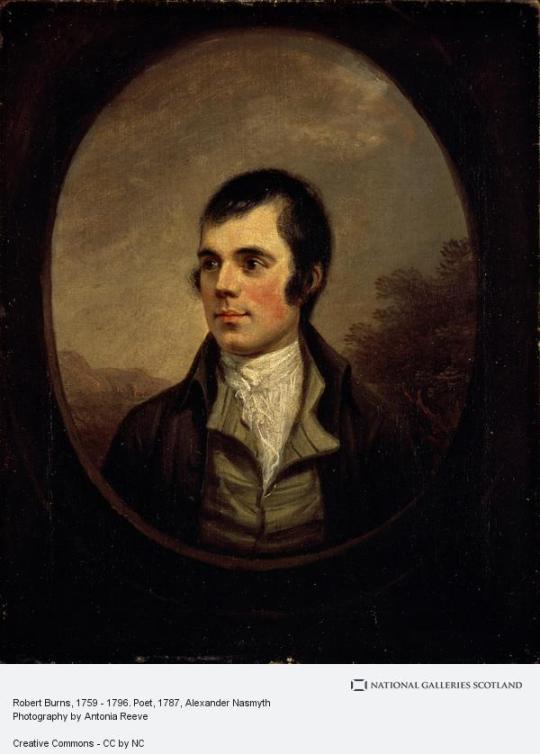
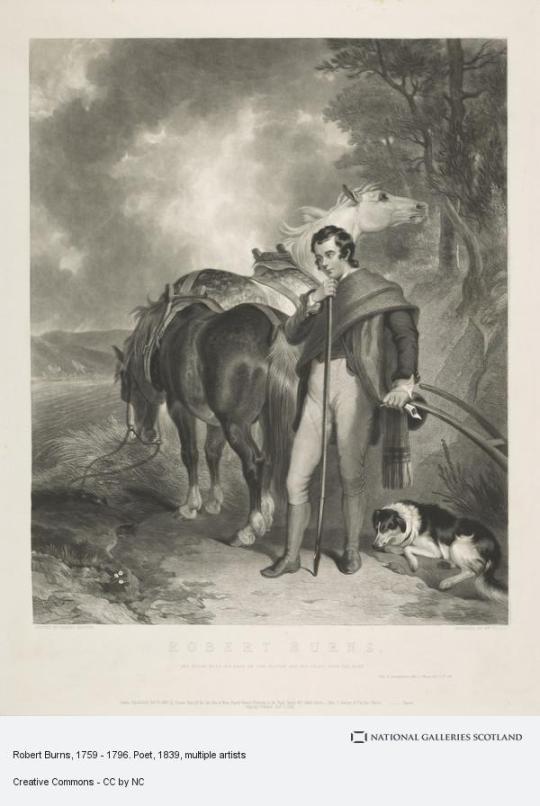
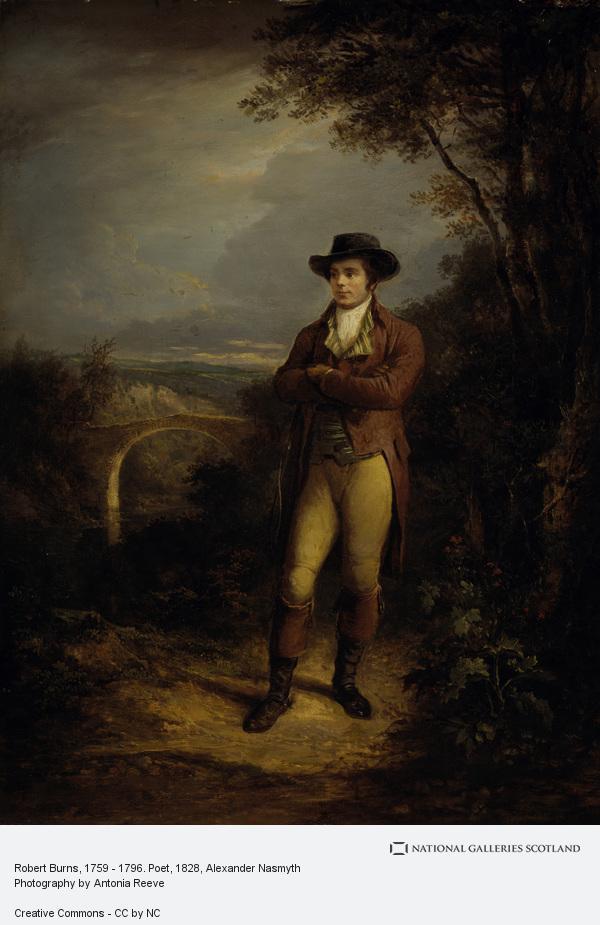
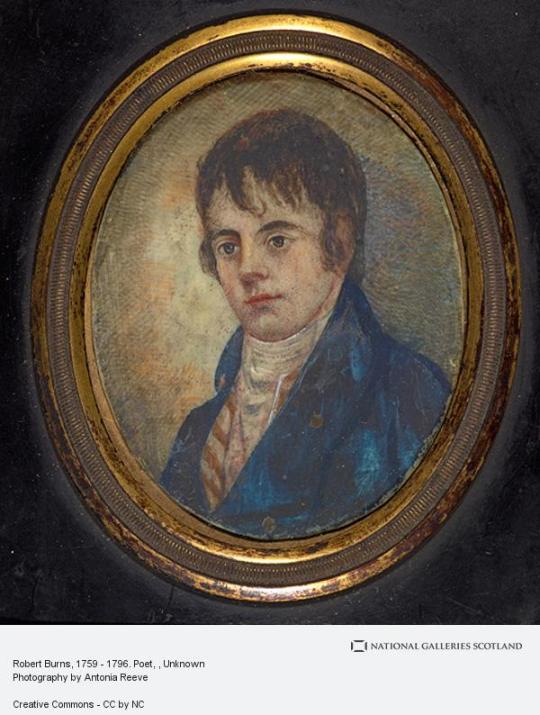
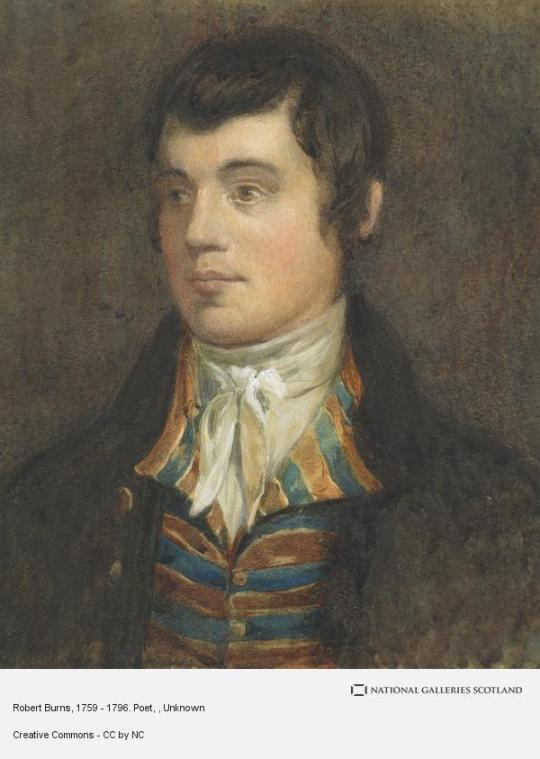
25th January marks the annual celebration of Burns Night - a time to celebrate Scotland's favourite son, and world renowned poet and song writer Robert Burns who was born on this day 1759.
I have covered Oor Rabbie on may occasions so on this day I hope to bring you a few facts about Scotland's National Bard and his legacy.
Known as somewhat of a ladies man, Burns is known to have fathered 12 or 13 children, depending on the source, to 4 different women. His last born child, Maxwell, was born on the same day as his funeral 25 July 1796, meaning his wife Jean Armour missed his send off.
As a lad growing up in Ayrshire, Burns was always fond of supernatural stories, most of which were told to him by an old widow who helped out on his father's farm. These stories no doubt had an influence on his writings in the future and perhaps were the inspiration for his classic masterpiece, Tam O'Shanter and the lesser known Adress to the Deil and Halloween. Even in these poems he flattered the fairer sex with his words, this from the latter poem.....
The lasses feat, an' cleanly neat, Mair braw than when they're fine; Their faces blythe, fu' sweetly kythe, Hearts leal, an' warm, an' kin':
Of course Burns also gives another of his favourite subjects a mention in this verse, "the deil himsel," Look it up it's another guid yin!
Burns didn't always want to stay in Scotland - he hoped to move to the Caribbean island of Jamaica. Although following the success of his poetry collection 'Poems, Chiefly in the Scottish Dialect' (or the Kilmarnock Edition as it is known), he opted to move closer to home, settling in Edinburgh for a time.
For all his fame, Burns never forgot his humble roots. His love for farming stayed with him throughout his life and his writing often dealt with issues affecting the poorer classes, notably highlighting the need for greater social equality. Indeed he is known as the Ploughman Poet, a nod to his farming life.
And on his legacy, Burns has gathered some very famous fans since his passing, US president Abraham Lincoln could recite Burns’ works by heart. Bob Dylan says that ‘A Red, Red Rose’ by Burns is his source of greatest creative inspiration and Michael Jackson song Thriller is said to have been inspired by Tam O'Shanter.
In Japan at pedestrian crossing you don't get beeps like here in Scotland, they play a rendition of the Burns song ‘Coming Through The Rye’.
There are more statues in honour of Rabbie than any other male figure in history, only surpassed in total by Queen Victoria. (I am not including religious statues).
In 2005 Robert Burns was the first person ever to feature on a bottle of Coca Cola, about a million were made they currently trade for around £10 and I have one, unopened in my kitchen cupboard.
Arguably Burns most famous song, Auld Lang Syne, has appeared in over 170 Hollywood films including The Apartment, It’s A Wonderful Life and When Harry Met Sally. , but he only rewrote the verse, he sent the poem to the Scots Musical Museum in 1788 indicating that it was an ancient song but that he'd been the first to record it on paper. The phrase 'auld lang syne' roughly translates as 'for old times' sake', and the song is all about preserving old friendships and looking back over the events of the year.
In the US city of Atlanta, there is a life-size imitation of Burns’ first home in Alloway, South Ayrshire, although it doesn't have the famous thatched roof.
In Scotland, there are some 20 official Burns memorials dotted around the country, from Aberdeen to the final resting place of Burns in Dumfries, which commemorate his journey from Ayrshire to “Auld Lang Syne”.
‘My Heart’s in the Highlands’ was translated and adopted as the marching song of the Chinese resistance fighter in the Second World War.
In 2009 STV viewers voted Robert Burns ‘The Great Scot’, beating the likes of William Wallace, Robert the Bruce among others.
There are Burns Clubs scattered across the globe, but the very first one, known as The Mother's Club, was founded in Greenock in 1801. They held the very first Burns Supper on what they thought was his birthday, January 29th 1802, only to discover that his birthday was actually January 25th!
Since then Burns suppers have been held worldwide.
I know some of you out there will toil to understand some of Burns's poetry, don't fear you will find the Best of Robert Burns, translated into the "de'il's tongue" just Click here...
The song Ae Fond Kiss, was one of my mums favourites the words "Never met-or never parted, We had ne'er been broken-hearted" are inscribed on her grave......"
43 notes
·
View notes
Text
Introducing our own Burns Night Blend! — Master of Malt Blog
Introducing our own Burns Night Blend! — Master of Malt Blog
Burns Night approaches and we’ve only gone and created our own bottle of Scotch whisky to mark the event: The Burns Night Blend. Burns Night is the ultimate celebration of all things Scottish, an evening to celebrate the tremendous contributions and culture of all Scots, not just the Bard of Ayrshire himself. At Burns Night…
Introducing our own Burns Night Blend! — Master of Malt Blog
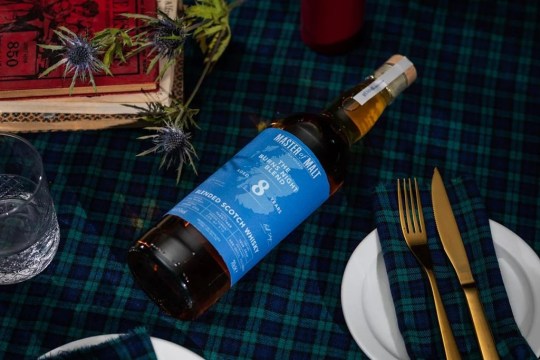
View On WordPress
0 notes
Text
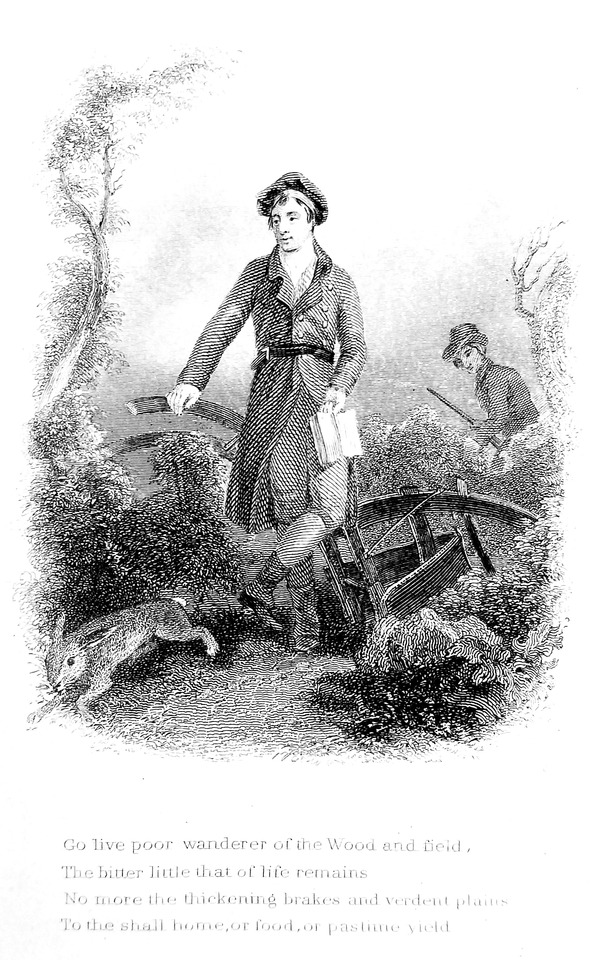
Robert Burns (25 January 1759 – 21 July 1796)
Scottish poet and lyricist, also known as Rabbie Burns, the Bard of Ayrshire, Ploughman Poet and various other names and epithets. He is widely regarded as the national poet of Scotland and is celebrated worldwide. (Wikipedia)
From our stacks: Frontispiece and excerpt from ‘The Wounded Hare’:
“Go live poor wanderer of Wood and field, The bitter little that of life remains No more the thickening brakes and verdent plains To thee shall home, or food, or pastime yield”
from The Complete Poetical Works of Robert Burns: With Explanatory and Glossarial Notes; and a Life of the Author, By James Currie, M.D. The Second Complete American Edition. New York: D. Appleton & Co., 1847.
#robert burns#burns#the wounded hare#illustration#book illustration#poetry#poet#poets#literature#literary#rabbie burns#bard of ayrshire#ploughman poet#scottish#scottish poetry#scottish literature#poem#poems#hare#vintage illustration#romanticism#book#books#old books#poetry books#detroit public library
28 notes
·
View notes
Photo
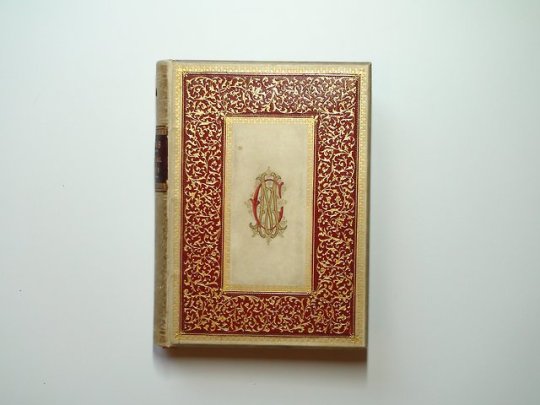
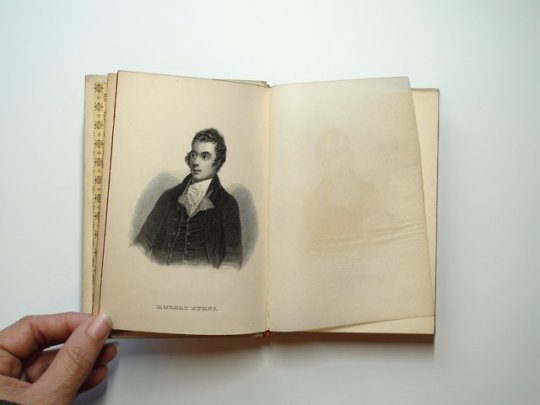
The Poetical Works of Robert Burns.
With the Life and Portrait of the Author.
BUY ON ETSY
MAESTRO BOUND IN LEATHER
Publisher: Bernhard Tauchnitz, Leipzig
Copyright: 1845
--
Robert Burns (25 January 1759 – 21 July 1796), also known as Rabbie Burns, the Bard of Ayrshire, Ploughman Poet and various other names and epithets, was a Scottish poet and lyricist. He is widely regarded as the national poet of Scotland and is celebrated worldwide. He is the best known of the poets who have written in the Scots language, although much of his writing is also in English and a light Scots dialect, accessible to an audience beyond Scotland. He also wrote in standard English, and in these writings, his political or civil commentary is often at its bluntest.
He is regarded as a pioneer of the Romantic movement, and after his death, he became a great source of inspiration to the founders of both liberalism and socialism, and a cultural icon in Scotland and among the Scottish diaspora around the world.
--
Condition: This book is in good condition. Leather. A fantastic example of Victorian binding. This book is maestro bound in white leather. Cover has beveled edges and extensive hand-tooling and bright gilt fleurons. Cameo bearing the initials CM/MC in the center. High quality textured endpapers. Binding sturdy. Hinges tight. Text block is crisp and clean. Frontispiece portrait of the author. All edges red.
4.5" x 6", 366 pages
#bard of ayrshire#robert burns#poems#poetry#victorian#victorian binding#Beautiful books#antiquarian books#romantic poems#bookstore#old#old books#old book#antiquarian book#rare book#rare books#bookish#books#bookseller#antiquarian book seller
8 notes
·
View notes
Photo

To the Bard of Ayrshire
Thursday 25th January 2018
I’ll raise a glass to Rabbie Burns
And toast the man my way,
Southern Comfort with a couple of cubes
To the man who penned “Scots Wha Hae”.
To Rabbie.
Happy Burns night fellow tumblr’s.
#my photography#photographers on tumblr#black & white & colour photography#robert burns#burns night#rabbie burns#bard of Ayrshire
24 notes
·
View notes
Text
I don’t think I’ve ever read poems about love that are as beautifull and moving as Edwin Morgan’s.
1 note
·
View note
Photo
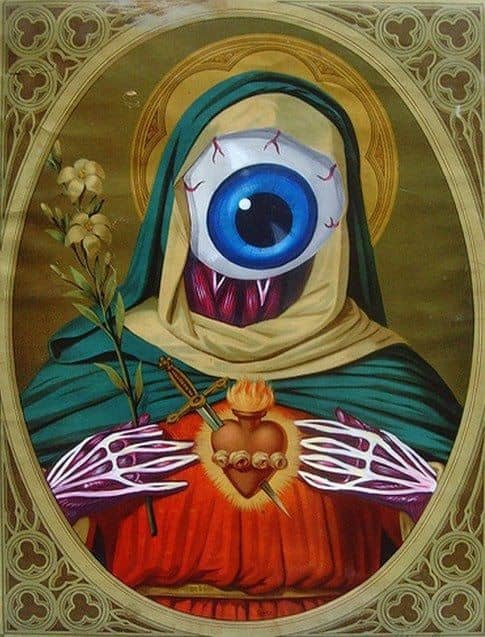
“Deep this truth impressed my mind —
Thro' all his works abroad,
The heart benevolent and kind
The most resembles God.”
Robert Burns - the Bard of Ayrshire 1759-1796. A Man’s a Man for a’ That.
Art by Vanmirk
74 notes
·
View notes
Note
O were my love yon Lilac fair,
Wi' purple blossoms to the Spring,
And I, a bird to shelter there,
When wearied on my little wing!
How I wad mourn when it was torn
By Autumn wild, and Winter rude!
But I wad sing on wanton wing,
When youthfu' May its bloom renew'd.
Yes I did just serenade you with Rabbie Burns the Bard Ayrshire
🥺👉🏻👈🏻
2 notes
·
View notes
Text
New Years in Scots language from the Bard of Ayrshire, Robert Burns...
Should auld acquaintance be forgot,
and never brought to mind?
Should auld acquaintance be forgot,
and auld lang syne?
For auld lang syne, my jo,
for auld lang syne,
we'll tak' a cup o' kindness yet,
for auld lang syne.
And surely ye'll be your pint-stoup!
and surely I'll be mine!
And we'll tak' a cup o’ kindness yet,
for auld lang syne.
We twa hae run about the braes,
and pou'd the gowans fine;
But we've wander'd mony a weary fit,
sin' auld lang syne.
We twa hae paidl'd in the burn,
frae morning sun till dine;
But seas between us braid hae roar'd
sin' auld lang syne.
And there's a hand, my trusty fiere!
and gie's a hand o' thine!
And we'll tak' a right gude-willie waught,
for auld lang syne.
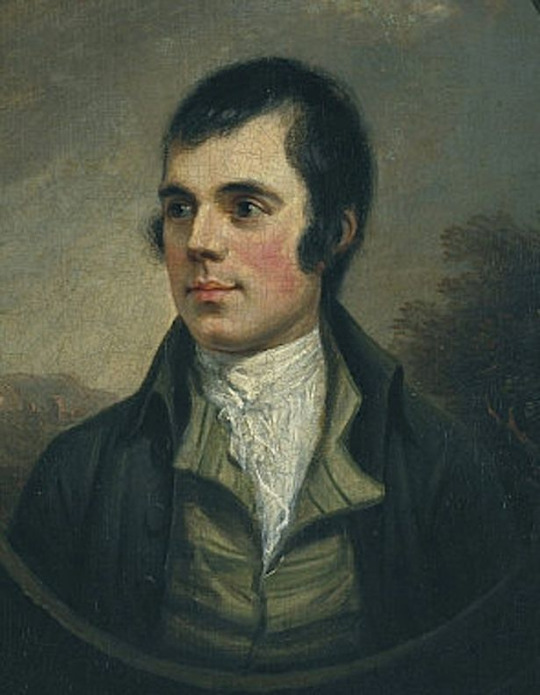
2 notes
·
View notes
Text
Curious connections
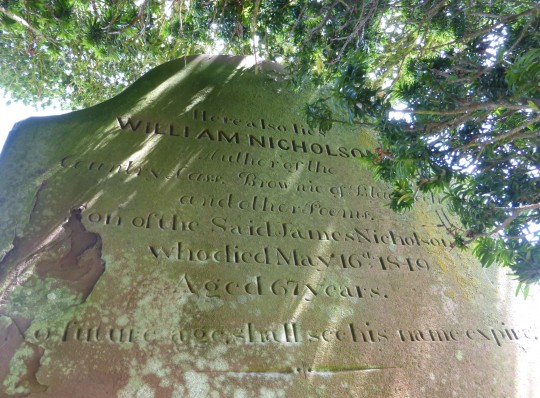
A shared proverb and poet link the two apparently unconnected PLACE in the Biosphere communities of Kirkcowan and Borgue.
In the 1800s both were regarded as remote villages and shared the local saying “out of the world and into Kirkcowan / Borgue” implying both villages were in a world of their own, unaware of what is happening elsewhere. The saying is often repeated today despite better road networks and connections through the world wide web.
Both villages also share a connection with William Nicholson the ‘packman poet’ or ‘bard of Galloway’. Born in the parish of Borgue William was the youngest of eight children. He left school to become a travelling salesman known as chapmen or packman selling portable goods to remote farmsteads throughout Galloway and Ayrshire. Chapmen were welcome visitors, not only for the warea they had to sell but also because they came with news form the outside world (particularly valued if you lived in a remote place) and exchanging entertainment for accommodation. William gained a reputation for his poetry and when he hit on hard times set off to Edinburgh to get his poems printed. Published in 1814 Tales in Verse and Micellaneous Poems, descriptive of rural life and manners was well received. In 1825 William had his poem about Aiken-drum in The Brownie of Blednoch published and inspired the artist EA Hornel’s painting now held at Kelvingrove Museum; https://www.youtube.com/watch?v=t_j-cd6MUa0
Set in a farm near Kirkcowan children of the area would be told of the scary brownie who could leap the waterfall at the Linn of Barhoise. The brownie of Blednoch appears to have been a popular theme for annual parades in the village.
William Nicholson died in Borgue in 1849 and was buried in Kirkandrews churchyard in the parish of Borgue. The headstone is a bit tricky to locate as it is hidden behind a yew tree and the inscription is on the reverse of the memorial the final words saying ‘No future age shall see his name expire’.
Perhaps both Borgue and Kirkcowan can help ensure more is known about the bard of Galloway!
2 notes
·
View notes
Text
Cranachan
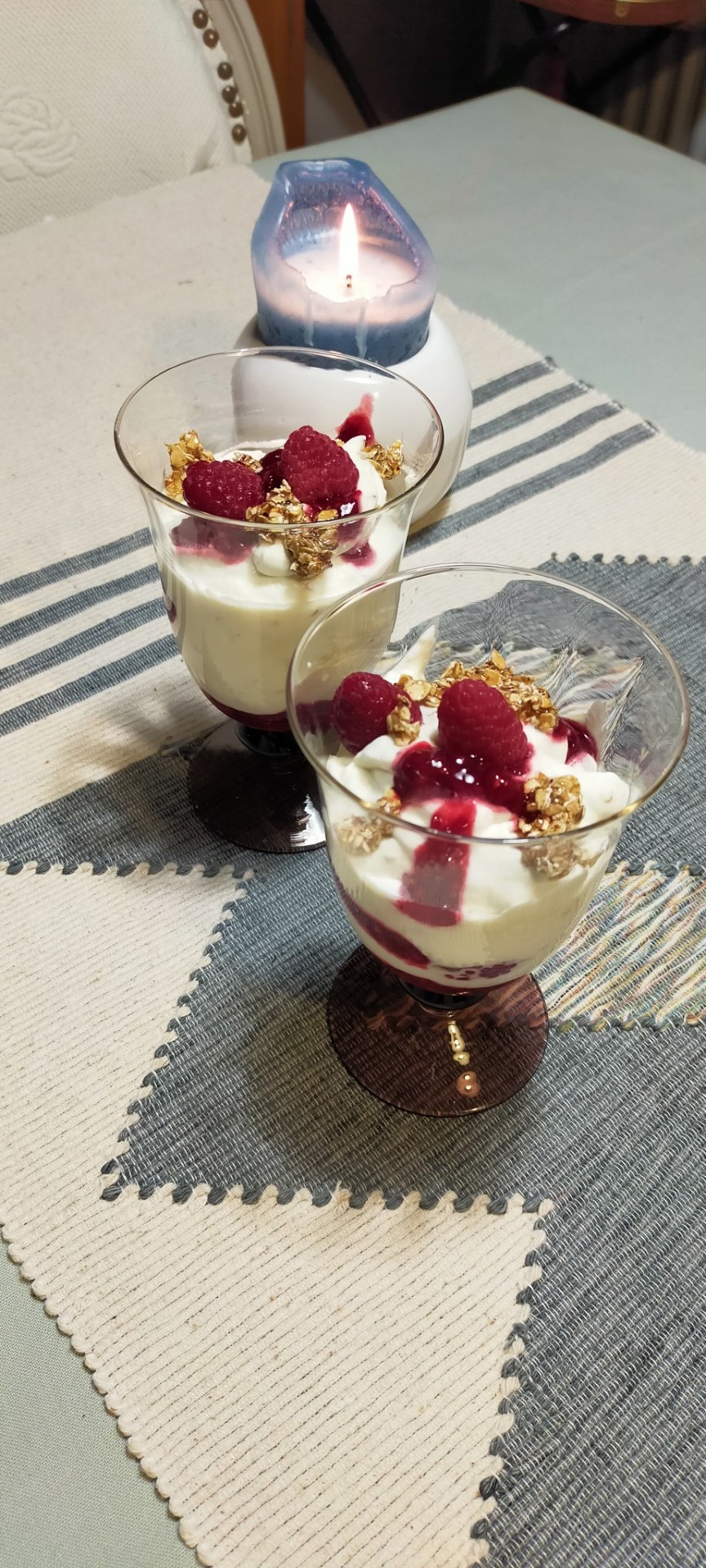
I may not be a Scot, but I will celebrate any country’s national feast if it’s a chance for good food, music and merriment! Thus on Burns Night, I pour myself a glass of good Scotch Whisky, read The Bard of Ayrshire’s poetry, listen to his songs, and cook a warming Scot feast -though I have yet to try haggis, I reckon I shall when I am in Scotland! Even better, is to have a lovely lassie over, to share Cranachan with. That, I know, Rabbie would approve! Have a good one!
Ingredients (serves 2):
1 cup fresh raspberries, rinsed
2 tablespoons Elderflower Sugar (or plain caster sugar)
2 heaped tablespoons whole rolled oats
1 tablespoon fragrant pure honey (like heather)
1/2 cup double cream
1 heaped tablespoon fragrant pure honey (like heather)
1 1/2 tablespoon good single malt Scotch Whisky (like The Glen Grant Arboralis)
Save a few whole raspberries. In a small bowl, mash the rest of the fresh raspberries with a fork until you have a chunky purée. Stir in Elderflower Sugar until completely dissolved. Set aside.
Toast whole rolled oats in a dry frying pan until they start colouring and smell nutty. Remove from the heat, and divide toasted oats between two small bowls. Stir heather honey into the oats in one of the bowls, keep the other plain. Set aside.
Pour double cream in a medium bowl, and whisk energetically until soft peaks form. Whisk in the honey, and continue whisking, gradually adding the Whisky. You want the cream to just hold, and remain soft. Gently fold in plain toasted oats.
Spoon a tablespoonful Elderflower raspberry purée at the bottom of each of two glasses. Top with Whisky and honey oat whipped cream, and a few fresh raspberries. Repeat. Finish with a drizzle of the purée, a couple of fresh raspberries, and honey toasted oats.
Chill slightly before serving.
Serve Cranachan for dessert, with a glass of good Scotch Whisky.
#Recipe#Food#Cranachan#Cranachan recipe#Raspberries#Fresh Raspberries#Elderflower Sugar#Sugar#Caster Sugar#Oats#Rolled Oats#Whole Rolled Oats#Toasted Oats#Honey#Heather Honey#Double Cream#Whisky#Scotch Whisky#The Glen Grant#Arboralis#Single Malt Whisky#Single Malt Scotch Whisky#Dessert#Dessert recie#Burns Night#Burns Night Dinner#Burns Night recipe#Celebratory Food#Scottish Cuisine#British and Irish Pub
6 notes
·
View notes
Text
youtube
On the 3rd October 1721 The Rev. John Skinner, author of "Tullochgorum", described by Robert Burns as “the best Scotch song ever Scotland saw” was born at Balfour, Aberdeenshire.
I always like when the Reverend Skinner pops up as it gives me an excuse to post one of my favourite old Scottish songs, and tell the story about it.
The tune Tullochgorum had been around for a long time before one day John Skinner was visiting one of his parishioners, a Mrs Montgomery in the town of Ellon near Aberdeen, the conversation over dinner must be just like conversations nowadays, as it had turned to politics in order to turn the chat away from this heated debate Mrs Montgomery suggested the good Reverend should write a wee song, and further put to him it should be to the old fiddle tune ‘The Reel o’ Tullochgorum ’
And gie’s a song, the lady cry’d, and lay your disputes a’ aside
What signifies’t for folks to chide for what was done before them
Let Whig and Tory a’ agree
Whig and Tory, Whig and Tory
Whig and Tory a’ agree to drop their Whig-malorum
Let Whig and Tory all agree to spend the night in mirth and glee
And cheerful sing alang wi’ me the Reel o’ Tullochgorum
O Tullochgorum’s my delight, it gars us a’ in ane unite
And ony sumph that keeps up spite, in conscience I abhor him
For blythe and merry we’ll be a’
Blythe and merry, blythe and merry
Blythe and merry we’ll be a’, and make a happy quorum
For blythe and merry we’ll be a’ as lang as we hae breath tae draw
And dance till we be like to fa’, the Reel o’ Tullochgorum
What needs there be sae great a fraise like dringing dull Italian lays
I wadna gie our ain strathspeys for half a hunder score o’ them
They’re dowf and dowie at the best
Dowf and dowie, dowf and dowie
Dowf and dowie at the best wi’ a’ their variorum
They’re dowf and dowie at the best, their allegros and a’ the rest
They canna please a Highland taste compar’d wi’ Tullochgorum
May choicest blessings aye attend each honest open-hearted friend
And calm and quiet be his end, and a’ that’s good watch o'er him
May peace and plenty be his lot
Peace and plenty, peace and plenty
Peace and plenty be his lot, and dainties a great store o’ them
May peace and plenty be his lot unstain’d by ony vicious plot
And may he never want a groat that’s fond o’ Tullochgorum.
A wee bit more about Skinner himself, originally a presbyterian minister he had abandoned that in favour of Episcopalian, at this time the Jacobite uprising was gathering pace and, although Skinner was no Jacobite, he was caught up in the movement and accused of the “crime” as it was. It got so bad for the poor reverend that his Chapel was one of those that were burnt by ‘The Campbells’; the soldiers of the ruthless ‘Butcher’ Cumberland, egged on by the same local persecutor Skinner lampooned in his sermons. In 1753, Skinner was jailed also in Aberdeen for six months for the offence of ministering to a gathering of more than four people. Skinner used to officiate to his own family within his house, while the people stood outside and listened through the open windows, he was a very popular guy!
So as well as a minister and a poet/songwriter Skinner also took to history, in 1788, he published his ‘Ecclesiastical History of Scotland’. This was a detailed account of the affairs of the Episcopal Church, from the time of the Reformation up to the death of Charles Stuart. Skinner dedicated this work to his son. He was also asked by Bishop Gleig to contribute to the ‘Encyclopaedia Britannica’, which he did with materials on ‘The Origin of Language’, ‘Episcopacy’ and ‘The Wisdom of the Egyptians’.
The poet Robert Burns was a big fan of Skinner’s work, and when, in the late 1780’s the Ayrshire bard was in Aberdeenshire he passed close to Skinners home, only finding out afterwards. The two began corresponding with each other and Burns included three of Skinners poems in his collection Johnston’s Miscellany’, this included Tullochgorum, Burns told Skinner his letter was, “by far the finest poetic compliment I ever got in plain dull prose.”
In latter life, Skinner was presented with the ‘Freedom of the City’ of Old Aberdeen. The Reverend John Skinner died in Aberdeen on the 16th of June, 1807, in the house of his son the Bishop, with whom he had been staying. He was buried in the Kirkyard in Longside, where there is a monument erected to his memory.
6 notes
·
View notes
Text
Burns Night
‘Tis the week before Burns Night….
We are hosting Burns Night for our little Clan this year. If you aren’t aware, it is the night that we honor the poet laureate of Scotland.
Robert Burns, also known as Rabbie Burns, the Bard of Ayrshire, Ploughman Poet and various other names and epithets, was a Scottish poet and lyricist. He is widely regarded as the national poet of Scotland and is celebrated…
View On WordPress
1 note
·
View note
Text
Lads & Lassies, Pipers & Poets
Lads & Lassies, Pipers & Poets
January 25th marked the birth of Robert Burns. The Ploughman Poet. The Bard of Ayrshire. Scotland’s favorite son. Sadly, most people only admit knowledge of the catchy tune he penned that they drunkenly mumble along to come New Year’s Eve at midnight: Auld Lang Syne.
He wrote poems and lyrics, collected and improved folk songs and fathered as many children with as many women who would have him.…
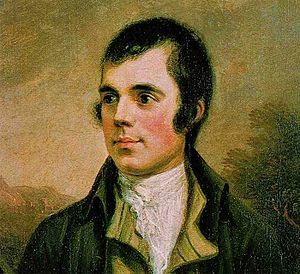
View On WordPress
#Auld Lang Syne#Bagpipe#bagpiper#Burns Night#Burns supper#Haggis#Poetry#Robert Burns#Scotland#uisge bathea#Whisky
0 notes
Text
Burns Night 2022: When was Robert Burns born? Here's who Robert Burns was, where he was born and how he died
As Burns Night 2022 gets underway, here's everything you need to know about Scotland’s national poet and the Scots bard, Robert Burns.
Tuesday, 25th January 2022, 12:13 pm
Every late January sees Scots raise a toast and plates of haggis, neaps and tatties to honour Scotland's national poet and the Bard of Ayrshire, Robert Burns on Burns Night.
0 notes